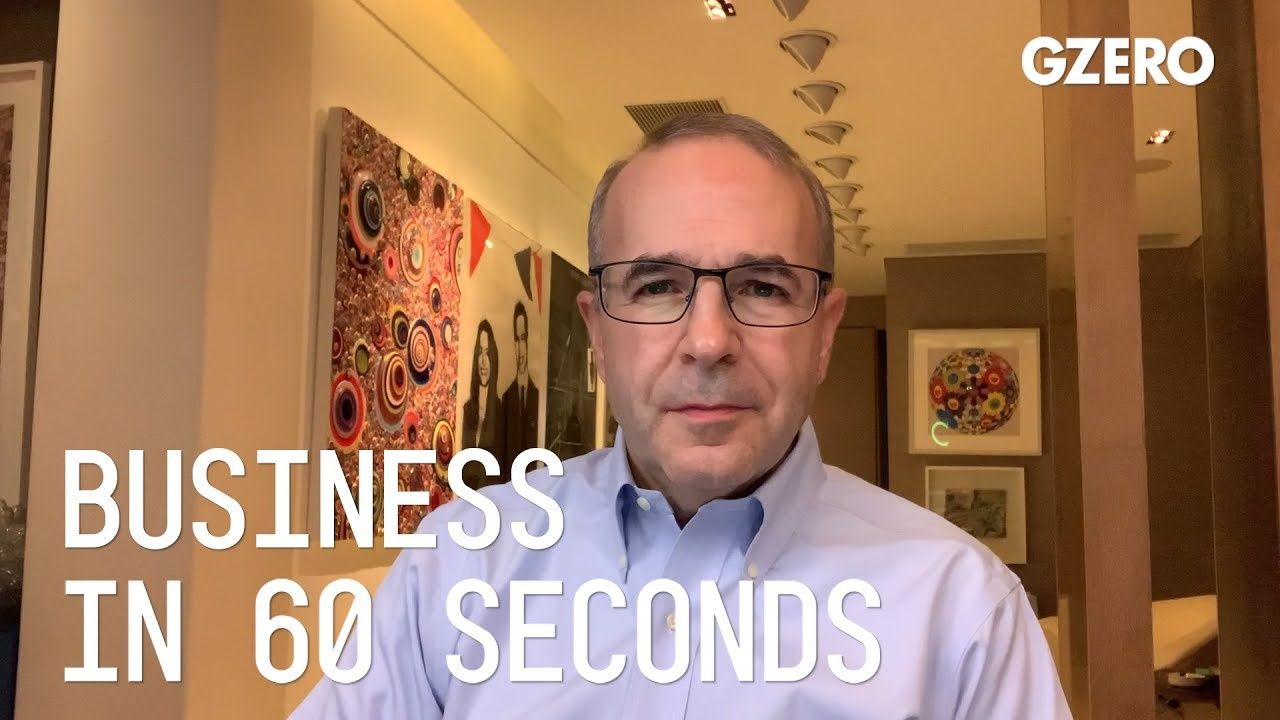In 60 Seconds
Learnings from working post-COVID: economy, work-life, leadership

Learnings From Working Post-COVID: Economy, Work-Life, Leadership | Business In :60 | GZERO Media

Kevin Sneader, Global Managing Partner at McKinsey, shares his perspective on corporate business leadership on Business In 60 Seconds:
What do we know now that we did not know four months ago when the coronavirus struck with vengeance?
I think there's a lot. First, we've learned about our economy. We know that we've now taken the elevator down and we're taking the stairs back up. We're seeing a return, as I observe what's happening across the world, but from a very low base. And the letter of choice is not an L, a V or a U, but I think it's a big question mark.
Secondly, we've learned about what we like in the workplace and what we do not. Indeed, much that has proven attractive about remote working has stuck. Time with family. The ability to source expertise wherever it may be located. But there's much that's not. After all, as many have said to me, there's a fine line between sleeping at the office and working from home.
Third, we've learned about leadership. As one CEO suggested, all the traditional stuff does matter. Being a good listener. Being aware of the details, able to see the big picture. But perhaps the most valuable capability is one that's not often associated with CEOs, it's being able to show some love, to show some love. We've learned that first and foremost, this is a humanitarian crisis and one where empathy and understanding have really proven to be the leadership qualities that matter.
America’s new National Security Strategy confirms what Europeans have feared for months: Washington now sees a strong, unified European Union as a problem to be solved, not an ally to be supported.
In this episode of Tools and Weapons, Microsoft Vice Chair and President Brad Smith sits down with Ed Policy, President and CEO of the Green Bay Packers, to discuss how purpose-driven leadership and innovation are shaping the future of one of the world’s most iconic sports franchises. Ed shares how technology and community-focused initiatives, from Titletown Tech to health and safety innovations on the field, are transforming not just the game of football, but the economy and culture of Green Bay itself. He explains how combining strategic vision with investment in local startups is keeping talent in the Midwest and creating opportunities that extend far beyond Lambeau Field.
Subscribe and find new episodes monthly, wherever you listen to podcasts.
More than a week after Hondurans cast their ballots in a presidential election, the country is still stuck in a potentially-dangerous post-election fog.